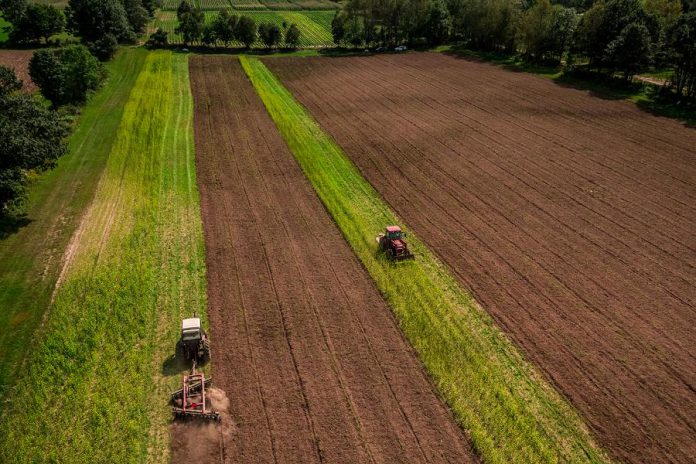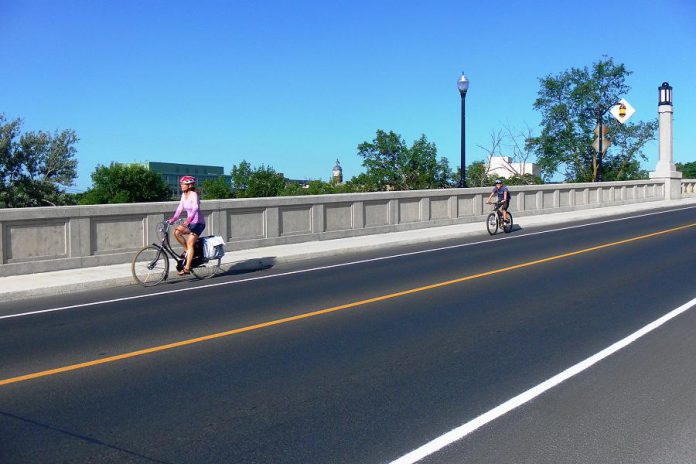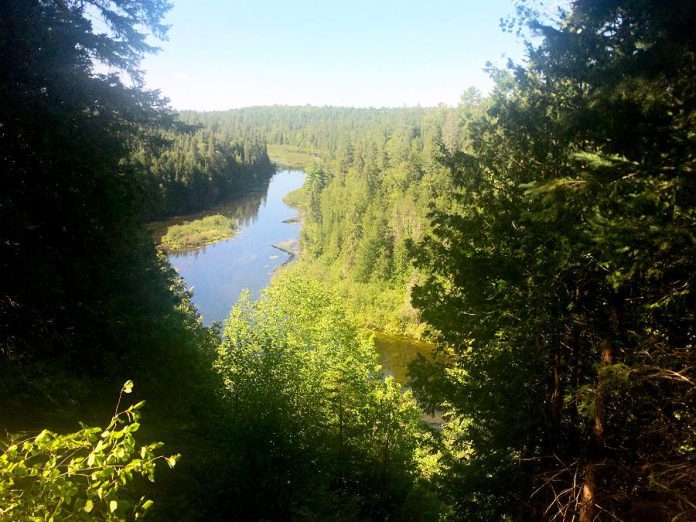
September roughly marks the six-month anniversary of global shutdowns and our shared behavioural changes to limit the spread of COVID-19.
As we live through this historical moment, we can’t help but wonder if we are learning anything about that other worldwide crisis, the climate emergency.
We turned to some experts for perspective. They helped us identify four lessons the pandemic is teaching us that may help address the climate emergency.
1. Behavioural change is key
Many have observed striking similarities between the pandemic and the climate emergency. For example, COVID-19 and climate change are both huge and complex global problems.
Another similarity is that both are caused by tiny things: the pandemic by a crown-shaped virus about 120 nanometres in diameter, and climate change by tiny molecules of greenhouse gasses that humans have been pumping into the atmosphere for centuries.
Overcoming both emergencies requires that we change our behaviours, like wearing re-usable masks, maintaining physical distancing, and making choices that reduce waste and emissions.
2. But behavioural change alone isn’t enough
“I think there’s a major distinction between COVID-19 and climate change,” observes Dr. James Murton, a professor at Nipissing University who specializes in environmental history.
“There may very well be a technical fix to the pandemic — a vaccine — and there is no technical fix for climate change. Climate change is a systemic problem.”
Behavioural changes like masks and physical distancing are the best defence against COVID-19 until we have a safe and effective vaccine. However, there is no such “until” solution for climate change.
Technology does have a role to play, but there will never be a solution like a vaccine for decarbonizing the economy. We need both behavioural and systemic change to fight climate change.

3. Leaders can and must act quickly
In the spring, our leaders quickly prepared the biggest fiscal stimulus plans in Canadian history to help flatten the curve and soften the economic strain of COVID-19.
“We’ve seen significant government spending on programs to support people and businesses and, so far, it seems to be helping avoid major damage to the economy (because of COVID-19),” Dr. Murton says. “Responses to climate change have mostly not done this.”
One of the challenges facing our leaders is that the length of time between cause and effect is much greater with climate action than it is with COVID-19.
As Guy Hanchet, a committee member of the local environmental organization For Our Grandchildren, observed in a blog post from May:
“In the case of COVID-19, the effects occur after a time delay measured in weeks … In climate change there is a similar delay but it is measured in years or decades … In both cases you are steering while looking in the rear-view mirror.”
As we respond to this pandemic, it is possible for all levels of government to prioritize action that also addresses the climate crisis. There are two resources you can use to build your understanding of where our leaders should be steering systemic changes based on these lessons.
Last December, GreenUP developed the Peterborough Community Climate Action Resource, which is available at greenup.on.ca/climate-action-resource/. This document identifies five local initiatives that can drive the transformative action needed to become carbon neutral by 2050:
- Sustainable Urban Neighbourhoods
- Green Economy Peterborough
- Builders for Climate Action
- Home and Commercial Energy Conservation Programs
- Peterborough Moves
The International Institute for Sustainable Development (IISD) has similarly put together a list of seven Green Strings that must be attached to provincial and federal bailouts, stimulus packages, and recovery spending programs:
- Support only companies that agree to plan for net-zero emissions by 2050.
- Make sure funds go towards jobs and stability, not executives and shareholders.
- Support a just transition that prepares workers for green jobs.
- Build up the sectors and infrastructure of tomorrow.
- Strengthen and protect environmental policies during recovery.
- Be transparent and accountable to Canadians.
- Support must contribute to increased equity and well-being, leaving no one behind.
Transformative and accelerated systemic change is possible. We have seen our governments take action to address COVID-19, and we can and should expect this type of urgent and collective response to the climate emergency as well.

4. Increase equity
We need to emphasize that seventh point about equity from the IISD list above. Both COVID-19 and the climate emergency lay bare how racism, colonialism, and misogyny remain foundational to power, wealth, and freedom of choice.
“Relief and recovery efforts,” states the IISD in their Green Strings report, “must focus on improving well-being, particularly of those who have been historically and structurally oppressed.”
“In Canada, at least 438 civil society groups have signed the Principles for a Just Recovery, which outline how the well-being of peoples and ecosystems must be prioritized to build an equitable and resilient society.”
These requirements include addressing racial injustice, full implementation of the UN Declaration of the Rights of Indigenous Peoples, and striving for gender equality.
Dr. David Tough, a professor of Canadian political history at Trent University, suggests that the unsafe and in many cases deadly realities many people face “are choices framed by a particular political economy, one in which tax revenues are determined by the wealthy’s willingness to pay, not by society’s needs.”
“We are learning through COVID-19 and the climate crisis and the crisis of inequality,” Tough emphasizes. “I do think COVID-19 will transform people’s understandings of what is possible and what is impossible, simply because so much is so clearly on the line.”
To learn about the local fight for equity, follow and support the Nogojiwanong Friendship Centre at www.nogofc.ca, Black Lives Matter Nogojiwanong on Facebook, and the Community Race Relations Committee of Peterborough at racerelationspeterborough.org.
One of the biggest lessons we have all learned from the pandemic is that society is adaptable and the status quo can change. We must bring this lesson into our fight against climate change, without waiting for disaster to prompt our actions. We are in this together.


























